Have you ever noticed that the very best outdoor stories always start off with the same three words? “Do you remember ...?”
The tale might be about almost anything - the time your father killed that nice buck, the night you and your friend were lost in the snowstorm, the day your young pup pointed his first covey (or retrieved his first duck, or ran into his first porcupine). To be honest, the actual story, the particulars, don’t matter all that much. Instead, it’s the unstated implication behind the question.
Unlike other opening lines, “Do you remember” hints at a “we,” a “you and I,” a moment we shared, an experience we went through together. And that connection is what makes the story so wonderful. We can relive our memories, bouncing them back and forth off each other, filling in the blanks, polishing the moment in our mind, and throughout it all we have the reassurance that someone else - our father or son or wife or brother or buddy - was there, and they saw it too, and it was a special event that spanned two lives and drew them closer together.
I can’t speak for anyone else, but I love the storytelling, the camaraderie, almost as much as I do the time I spend afield. Sit me down at a campfire, or on the banks of a trout stream, or even at the kitchen table with a couple of friends and a pot of venison stew, and the words flow, the memories shine clear and life seems just about perfect.
The problem, of course, is that so many of the truly special outdoor events happen when we’re alone. Both fishing and hunting tend to be solitary pursuits and when nature reaches out with her magic wand and taps you on the shoulder, odds are that you won’t have someone there to share your amazement. You watch wide eyed and incredulous as the miracle of the moment occurs, and then afterwards your instincts are to turn and say, “My God, did you see that!?”
Only no one’s at your side, and the event is ever so slightly diminished because you don’t have that immediate, reciprocal feedback from the one person who would have appreciated the experience every bit as much as you did.
A few months back, I was sitting on a log at the edge of a new selective cut five miles from the Canadian border in Montana’s Kootenai National Forest. It was a cold, clear morning, and the deer were on the move. I watched a half dozen whitetails over the course of a couple hours; a doe feeding in front of me, a couple of medium-sized bucks sparring out in the center of the cut, a few more does browsing on the far edge. Then, with the kind of subdued, cold-induced recognition that blows in after a few hours of subzero log sitting, I realized that every whitetail I’d been glassing had somehow disappeared and I hadn’t seen a single animal in the last twenty minutes.
I don’t know about you, but I have a harder time sitting still on the ground than I do in a tree stand (probably something to do with the fact that it’s easier to walk away from a stump than it is to unstrap yourself from a tree and climb down fifteen feet), and consequently, it wasn’t hard to convince myself that I needed to wander over to that little knob forty feet away and check out the lower half of the cut - which, not surprisingly, was the half I couldn’t see from where I was sitting.
So I did. Not that there were any deer down below - for one thing, the wind currents were wrong, sending cold tendrils of my scent to anyone downhill of my position - but sometimes, as I told myself that day, you just have to look.
I waited on the knob for about ten minutes, glassing the cut’s lower edge, and then I started considering my options. I could stand there shivering for a while longer, hoping that the big, heavy- racked ten pointer I was hunting would wander out in the open, or I could walk back to the log where I’d left my pack and sit down until I turned into a popsicle. I thought both alternatives over for a second or two and then decided that I’d already had enough popsicle time for one morning. Which left still-hunting the timber in loud, crunchy snow, or hiking back to the truck and heading home for lunch and a quick nap.
I hadn’t quite made up my mind (although I was leaning toward lunch and a nap) when a bit of movement caught my peripheral vision. I turned back up the hill, and there, maybe eighty yards above me, were three tawny mountain lions - momma and her two not-quite-full-grown kittens.
They flowed down the mountainside toward me, a living embodiment of a river or an avalanche, and as I stood there watching in amazement, all thoughts of deer vanished from my mind. J.R.R. Tolkien once described a scene in “The Lord of the Rings” where a flood of water raced down a river channel, and among the first waves were half seen stallions made of foam, cavorting and leading the water’s charge. That’s how those lions seemed to me, ethereal elements, more spirit than substance, almost as if Mother Nature had allowed me a glimpse of her huge, wild heart beating fierce beneath her breast.
They flowed down - I don’t want to keep using that word, that analogy, but it’s the only one that truly fits - weaving in and out of each other as if they were threads on a huge, majestic loom, and then as they passed by, the nearest, a cub, leapt up on the log where I had been sitting, and where my pack still lay. At that point I saw the look in his eyes, and in the eyes of his mother and brother behind him, and the purpose that resided there was life, absolute, unequivocal life; but it was also death, death for a deer, or perhaps for an elk, or maybe even for a human if that human was arrogant enough to become complacent in the great northern forests where these graceful predators lived, and for just a second I remembered to be afraid.
Then they were gone, dropping into the timber below me with no more noise than snowflakes falling on a golden bed of larch needles, and I was left alone with the impression that I had touched a giant, and the giant had not deigned to notice.
When I caught my breath and could think clearly again, the first thing I lamented was not the brevity of the encounter - the whole thing lasted perhaps forty five seconds - but that my wife Molly wasn’t there with me, or Troy, or Jay, or Tim, or Lynn, or Rick. I wanted someone to share this gift with, someone close to me who would have appreciated the moment in the same way I did, and I knew that I’d never be able to do it justice, not with my words, not with my stories. I wanted, and maybe this is selfish, and if it is I apologize, but I wanted someone there who’d seen it through their own eyes, someone who could tell me about the little things I’d missed and who could also say, “Yes, it really happened, and it was incredible, and we were both lucky enough to be part of it.”
Despite the wonder I feel at the memory of that morning and those lions, there will always be a voice inside me that wishes I hadn’t been alone. For sometimes stories aren’t enough. Sometimes you need to share the memories as they’re being made.
Fortunately, those “God, you should have been there.” moments, those brief, spellbinding interludes that are somehow more real than the rest of our hectic lives, can, and occasionally do, occur when the absolute right person is at your side. Lynn Sessions and I once watched an osprey swim across the Madison with a trout so big he couldn’t lift it from the water; Troy Jones and I spent seven nervous, grueling hours chasing a big Idaho whitetail that I’d wounded (I remember Troy saying “This is the third time we’ve tracked him to this same exact spot) before I finally finished him off; my wife Molly and I ended up surprising a mother grizzly and her cub in a meadow five miles from our truck; and these stories in their complete and unabridged versions, as well as a couple hundred more, are now prefaced on a fairly regular basis with those three magic words.
“Do you remember ...?”
Which leads me to the absolute best thing about the tales we ply as we lay around at night in deer camp, or the yarns we spin as we stare into a campfire on the shores of a glassy, deep woods lake.
They don’t have to be treated like fine china.
You can drag them out of the closet any time you get the itch, and whether you laugh or cry or curse the cruel hand of fate, the important point is that they are your memories, and you have every right, indeed, I believe you have an obligation, to pull them out, brush them off, and shine them up.
And quite frankly, it just doesn’t matter how many times you’ve handled them in the past. There are always new angles; strange, quirky, humorous moments that you’d almost forgotten about, and as time passes, you’ll find that almost anything - a scent, a sound, a half seen image - can jar those memories free and set loose the bard within. Which, in the grand scheme of things, shows that a life lived afield and shared with friends and family is a life that you can be proud of, and that our stories, like the finest single malts, don’t just get older. They get better, too.




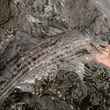

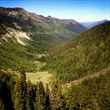
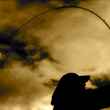
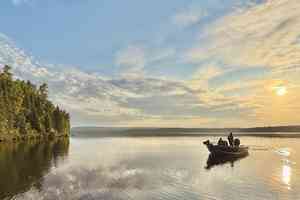


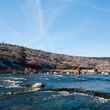




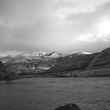




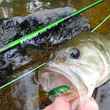




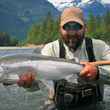
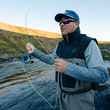


Comments